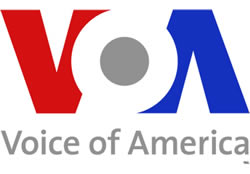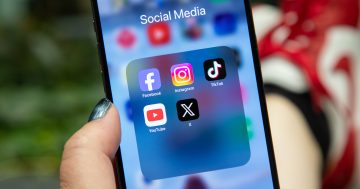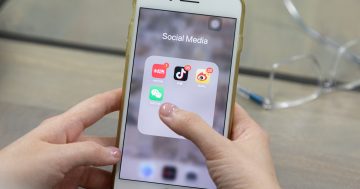Angela Chen* says Twitter and Facebook have hosted advertisements from United States-backed outlets, sometimes even illegally.
 Twitter is no longer accepting advertising from State-controlled news organisations after being criticised for letting Chinese State media buy advertisements meant to discredit Hong Kong protesters.
Twitter is no longer accepting advertising from State-controlled news organisations after being criticised for letting Chinese State media buy advertisements meant to discredit Hong Kong protesters.
The move has garnered praise, in part because Facebook has yet to follow suit.
However, if Twitter plans to take a principled stand against State propaganda, its ban should extend to media outlets backed by the United States Government, like Voice of America and Radio Free Europe.
At the very least, researchers say, social platforms have a responsibility to flag content being promoted by State-sponsored media.
Voice of America and Radio Free Europe were created by the American Government to spread news overseas during the propaganda wars of World War II and the Cold War.
Today, those outlets and a few others are supervised by the US Agency for Global Media (USAGM) with funding from the State Department.
Though long-time insiders say that the outlets support a US-centric agenda, they emphasise editorial independence.
As such they may not be subject to the advertising ban Twitter imposed.
A Twitter spokesperson told MIT Technology Review that the company would not comment on whether specific outlets would be banned.
Back in February, though, a Twitter representative told Jennifer Grygiel, a Communications Professor at Syracuse University, that the company does not have specific restrictions for pages from USAGM.
Twitter’s new ban makes exceptions for taxpayer-funded groups with independent oversight, like the British Broadcasting Corporation and National Public Radio (NPR).
However, those organisations receive a mix of Government and private funding.
Lawyer, Weston Sager says places like Voice of America and Radio Free Europe are essentially an arm of the US Government because they receive 100 per cent of their funding, or close to it, from the US Government.
A board of directors elects the leader of an outlet like NPR, but the Chief Executive of the USAGM is appointed by the US President.
In fact, these organisations are considered a form of propaganda under a piece of legislation called the Smith-Mundt Act.
Before being weakened in 2013, this Act prohibited outlets like Voice of America from broadcasting within the US.
Even now, Voice of America and its brethren are not allowed to target specific Americans through Facebook advertisements.
However, last year Grygiel found that such outlets had broken the law by buying Facebook advertisements aimed at specific American groups.
A Congressional investigation later found at least 860 violations of the law.
There are differences between Voice of America and a publication like Russia Today or China’s Xinhua News Agency.
However Grygiel says that at the end of the day, “it’s all State media”.
“State media has enormous potential to influence public opinion and be abused, because Governments have such deep pockets,” she said.
“We need bright lines when it comes to what’s independent and what’s controlled by the Government. To get in there and split hairs is not serving the public.”
Grygiel suggests that Facebook, Twitter, and other platforms should attribute content from all State-controlled media.
This would enable the public to understand the sources of funding and the possible slant.
*Angela Chen is a writer at MIT Technology Review. She tweets @chengela
This article first appeared at technologyreview.com.











